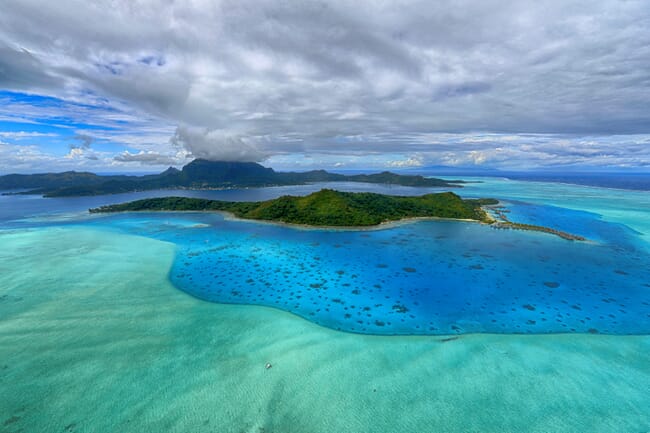Moreover, projects focusing on climate issues in fisheries dropped by 77 percent in this period.
These are the main results from a new study, published in Marine Policy, which was conducted by Robert Blasiak and Colette Wabnitz, as part of the Nippon Foundation Nereus Program. From 2010 to 2015, aid levels increased by over 13 percent to USD $133 billion, yet funding to fisheries projects in Oceania dropped by almost half, according to the study.
"Demonstrating tangible results in fisheries as a result of donor support is often more difficult in the oceans than it is on land," says Blasiak, who is a Postdoctoral Researcher at the Stockholm Resilience Centre.

"Fisheries are at the nexus of health, nutrition, livelihoods, and economic security, if aid can help to get fisheries 'right', the positive impacts will extend into lots of areas,” he adds.
Possible solutions
The authors point out that practical research could focus on how to improve fishers’ access to less vulnerable stocks, and transfer fishing effort away from vulnerable ecosystems like coral reefs on to less threatened open ocean stocks, with strategically located fish aggregating devices (FADs).
“The types of projects are really diverse, they include testing water quality and measuring ocean acidification, improving marketplaces, training local staff, and providing solar-powered fridges to remote communities to reduce spoilage and losses,” says Wabnitz, a research scientist from the University of British Columbia. “According to our research, fisheries ODA [aid] has also increasingly been channelled towards improving policy and management rather than fishery development.”
Blasiak and Wabnitz believe modelling, on-the-ground monitoring and capacity building can improve understanding of the future impacts of climate change on fish stocks and highlight pathways to sustainable management. This can improve future climate adaptation strategies.
“Tremendous advances in modelling have made it possible to identify countries that will be particularly vulnerable to climate change impacts. Science is enabling practical action to prioritize the most vulnerable areas, in line with stated international commitments,” says Blasiak.
Pacific concerns
Small island states that rely heavily on fisheries for food security, livelihoods, customs, and culture stand to be most impacted by this loss of aid, according to the study. Coastal communities in low-income countries are especially reliant on the micronutrients provided by fish. Many of the Pacific small island states have minimal land area and cannot turn to agriculture for their nutritional requirements.
Fish supplies 50 to 90 percent of the animal protein to the diets of many communities in the Pacific. But there has been an increase in exports of fish from these countries and imports of lower quality foods, such as canned meat, instant noodles, and cereal.


